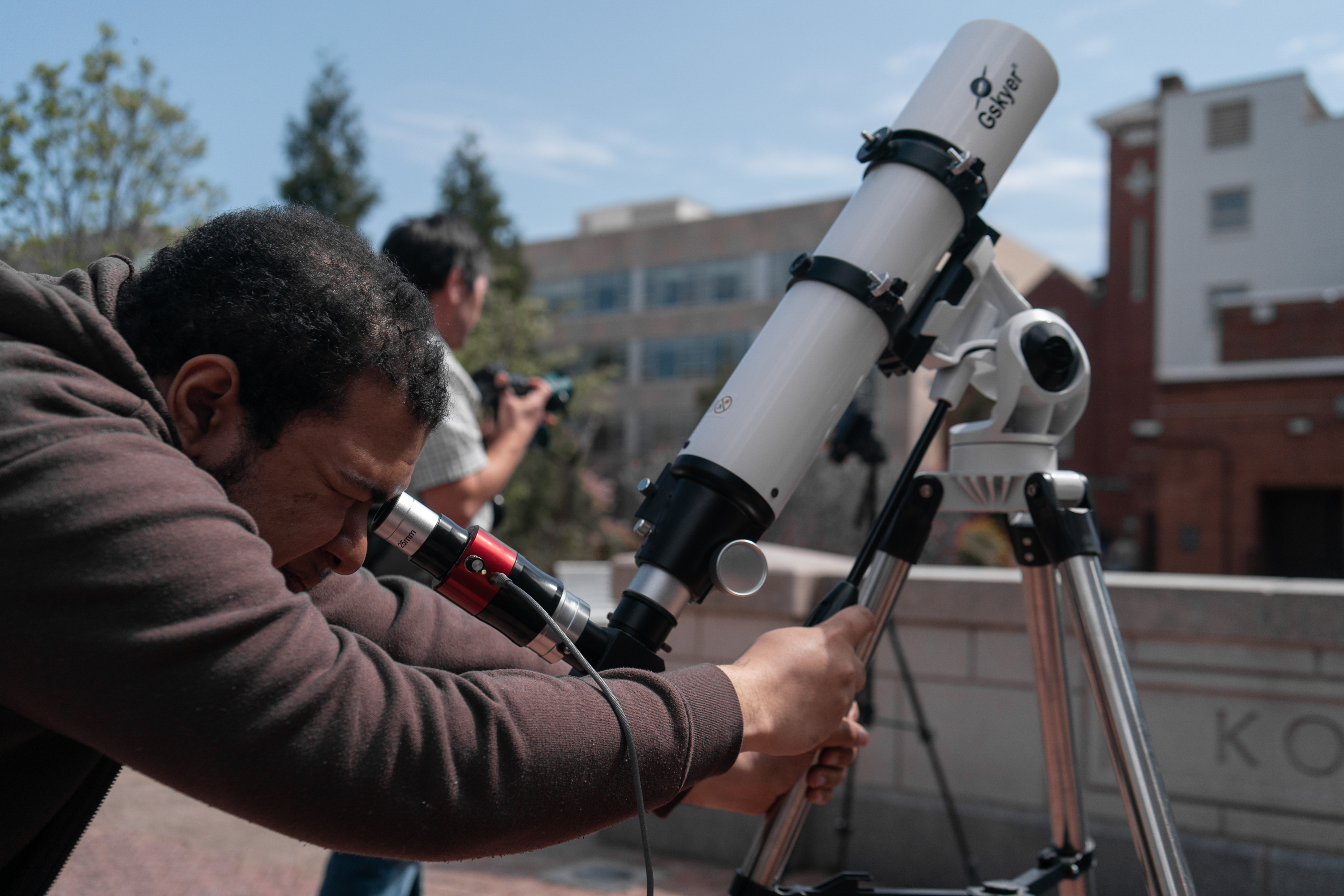Asteroids are traditionally detected and measured using ground-based observatories. However, additional detection capabilities are needed to detect small asteroids orbiting the sun to accurately quantify the risk of a collision between them and the Earth. At the 2024 Ethics in Engineering Case competition, undergraduate students junior Biomedical Engineering major Mikayla Havers and senior Mechanical Engineering major Tyler Wyka were challenged to find solutions to a fictional case study where two suppliers, CosmicScape and DetecAI, were contracted to help determine whether an asteroid detected by a ground-based telescope posed a concern.
This annual competition, hosted by Lockheed Martin, aims to prompt student reflection on the importance of workplace ethics and the various real-life dilemmas that may arise. In this year’s fictional case study, PositionSat contracted these companies to aid in accelerating their existing satellite demonstrator program. The program integrates an infrared (IR) telescope and artificial intelligence (AI) to assess asteroid risk, with CosmicScape providing the IR imaging subsystem and DetecAI supplying the AI detection and tracking algorithm used in the system.
Both suppliers faced numerous technical, ethical, and programmatic issues in delivering their components due to decisions made by management to meet the contract’s 120-day timeframe. For example, DetecAI decided to use an open-source foundation model since they didn’t have time to train a model from scratch, which presents both licensing and intellectual property concerns and technical concerns around the accuracy of the dataset. CosmicScape also had human resource (HR) concerns around respecting employees and hearing out opinions from experts in the field.
Overall, both DetecAI and CosmicScape encountered unexpected results, attributing them to false positives and blaming one another. In each round of the competition, Havers and Wyka were assigned one of these companies and had to present their recommended solutions before collaborating with the other team to develop a common approach to present to PositionSat.
The GW Engineering teams’s main solution to address the technical issues was to have the companies agree to quality checks that could be completed in the remaining 30 days, such as hiring an expert. To address the HR concerns, they proposed that CosmicScape issue a public apology to the engineer who was reprimanded for raising concerns early on about how using simulated data affects their imaging system’s detection accuracy.
“I learned a lot about company dynamics and trying to admit your faults while also trying to get what you desire out of the negotiation process,” Havers stated.
Out of 72 teams from schools across the country, Havers and Wyka placed in the top half of competitors. Both agree that their favorite aspects of the competition were meeting new people, including competitors who later became friends, and the opportunity to challenge themselves and expand their knowledge.
Supporting Havers and Wyka with the competition were their faculty advisors Caitlin Grady, an assistant professor of engineering management and systems engineering, and Leah Kaplan, a current Ph.D. candidate in Systems Engineering. This is the second year Kaplan and Grady teamed up to support this effort. Kaplan accompanied the students because she believes it is important for students to think about and practice ethical decision-making as they will face many different trade-offs in the working world.
“Sometimes ethics courses are focused on micro-ethical questions, such as did you use the correct materials in your research? However, most of the ethical questions faced in the real world are much more challenging with more uncertainty, so getting used to grappling with these tough questions is valuable for students,” said Kaplan.
As demonstrated by this competition and case study, the work of an engineer goes beyond just the technical, and engineering ethics education plays a crucial role in preparing students for the complexities of the workplace. Altogether, this experience underscored the significance of ethics in corporate decision-making for Havers and Wyka by highlighting the need for ethical consideration alongside achieving organizational goals.
“I liked that the case study was a planetary defense question, so we were talking about the broader implications of these corporations. It touched on the fact that there are larger themes to the individual decisions we make as a company,” said Wyka. “The go/no-go launch matters for the safety of people and so does tracking whether or not we’re going to have a hazardous item hit Earth in the next two or three years. But at the same time, you can’t sacrifice too many things getting there because the ends don’t justify the means.”


